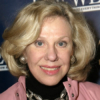Erica Jong

Erica Jong
Erica Jongis an American novelist and poet, known particularly for her 1973 novel Fear of Flying. The book became famously controversial for its attitudes towards female sexuality and figured prominently in the development of second-wave feminism. According to Washington Post, it has sold more than 20 million copies worldwide...
NationalityAmerican
ProfessionNovelist
Date of Birth26 March 1942
CityNew York City, NY
CountryUnited States of America
Erica Jong quotes about
- divorce
- age
- generations
- getting-older
- way
- stories
- remembers-everything
- forgiving
- remember
- sexuality
- ends
- whole-life
- impossible-situations
- serious
- tools
- love-and-death
- paradox
- love-poetry
- long-distance-relationship
- mountain
- bed
- female-writers
- fiction
- lasts
- firsts
- morality
- betrayal
- betrayed
- betray
- time
It's only when you're forbidden to talk about the future that you suddenly realize how much the future normally occupies the present.
Sex is God's joke on the human race ... if we didn't have sex to make us ridiculous, She would have had to think up something else instead.
Writers are doubters, compulsives, self-flagellants. The torture only stops for brief moments.
I knew I was in England by the smell.
My grandchildren are fabulous and funny.
The stones themselves are thick with history, and those cats that dash through the alleyways must surely be the ghosts of the famous dead in feline disguise.
My generation was not only maligned in book reviews and attacked in graduate school but we lived to see our adored and adorable daughters wonder why feminism had become a dirty word.
I thought to spend my declining years writing poetry and teaching - but that won't pay the Bergdorf's bill. I think I'll move to somewhere life is cheaper.
What are the sources of poetry? Love and death and the paradox of love and death. All poetry from the beginning is about Eros and Thanatos. Those are the only subjects. And how Eros and Thanatos interweave.
The problem with feminism in the second wave was that we fought so much among ourselves, and I think we did so much damage to the movement... and I think the next wave, the third wave, is women mentoring younger women and women helping younger women to enter the political process and the writing world.
Poetry is the language we speak in the most terrifying or ecstatic passages of our lives. But the very word poetry scares people. They think of their grade school teachers reciting 'Hiawatha' and they groan.
People always think that history proceeds in a straight line. It doesn't. Social attitudes don't change in a straight line. There's always a backlash against progressive ideas.
Often I find that poems predict what I'm going to do later in my own writing, and often I find that poems predict my life. So I think poetry is the most intense expression of feeling that we have.
Ken, my husband, just smelled like he belonged to me. I'm not talking about hygiene. I'm talking about when you hug him, he either feels like a member of your tribe or not. It's their scent.